"With you, trust comes naturally; you have honor woven into your fabric and that goes a long way when entering new territory in a coach’s office. Something that I learned early on in my sessions with you was that I truly was in the driver’s seat"
Defy the Gravity of Your Emotionally Immature Parent
Struggling With Poor Boundaries? Compulsively People Pleasing? How’s Your Inner Perfectionist Doing?
It’s Time to Defy Gravity, & Release Yourself from the Orbit of Your Emotionally Immature or Personality Disordered Parent
You May Present Yourself Well, And Others May Even See You As Confident And Capable.
But deep down, you're filled with self-doubt. You bite your tongue to avoid revealing how you really feel—because you know how it’ll go: they’ll either ridicule you or make it about themselves. You’re always on alert for signs of distress in others, because you’ve learned that it might turn into an explosion of rage. You’re terrified of conflict, because you’ll just end up being attacked, being wrong.
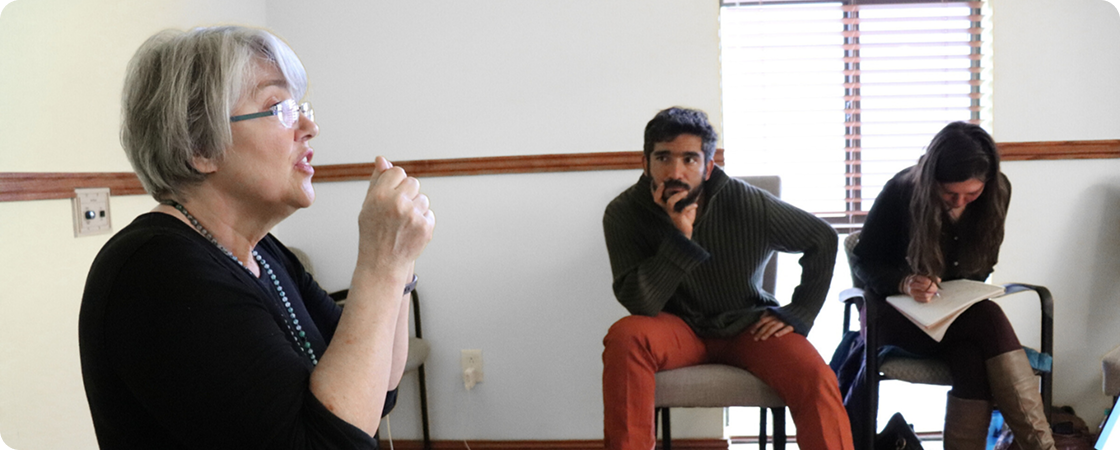
Even though you intellectually know better, you find yourself pulled back into your parents’ emotional orbit. And even though you want to break free, you notice the patterns:
🌀 You struggle with boundaries (even when you know you need to speak up).
🌀 You people-please (even if it means abandoning your own needs).
🌀 You aim for perfection (even though you know it’s impossible).
You’re stuck in a shame spiral—trapped between the anger you feel toward your parents and the desire to earn their approval. It's exhausting, confusing, and painful.
But maybe the hardest part?
You don’t really know who you are. You don’t even know that it’s okay to ask that question—or that it’s your right to live according to your own needs and values.
You are walking on eggshells.
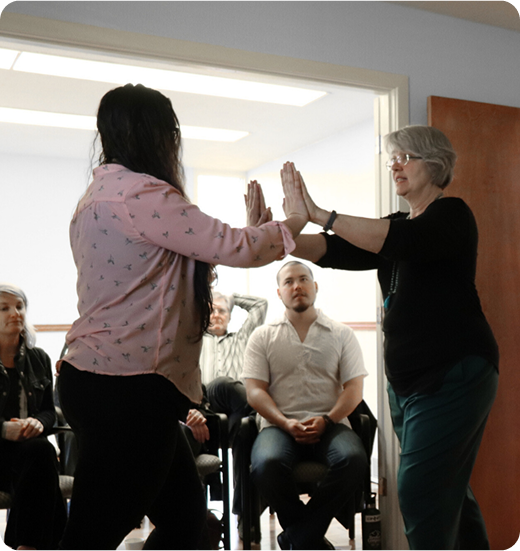
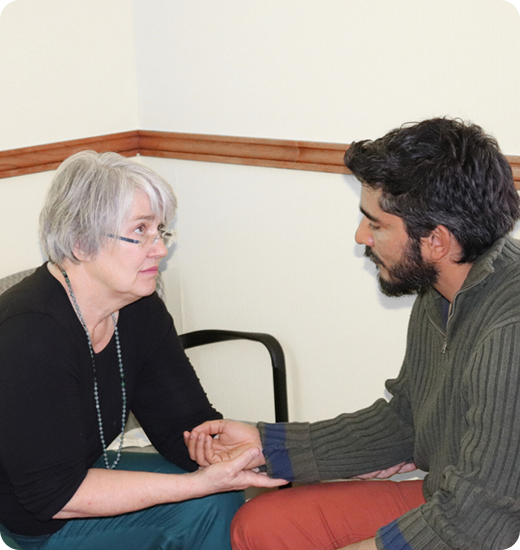
Having an emotionally immature parent, even one with Borderline Personality Disorder, or BPD, or with Narcissistic Personality Disorder, or NPD, isn’t always easy to identify. Particularly if you’re the child of one. If you’re unsure, check out this article I wrote.
As you look around, you feel how foreign you are from others who aren’t constantly second-guessing themselves, who are at ease with being less-than-perfect, and comfortable in relationships where they can let themselves be themselves.
This is a love letter to all those not seen, to all those given the impossible task of being the parent to their parents. Of being the unwilling recipient of their parents’ often bizarre expectations. Of not being seen at all, for the wonderfully complex, unique beings you actually are. As an expert on immature parents, I found clients with the same issues coming in to see me. Like me, they were exhausted. Numb. Constantly overwhelmed, trying to control every facet of their existence.
You Are Not Who Your Parents Wanted You To Be. You’re Not Yet What You Can Be.
Professionally, moving beyond perfectionism to risk-taking and exploration, beyond poor boundaries to assertion. Personally, knowing the joy of true intimacy with another, rejoicing in what you share, and energized by your differences.
And finally, to know that you are inherently worthy, to savor another’s worth. It is not enough to know intellectually that you are worthy. You must feel it in your bones. That your greatest gift to the world, the gift that underlies all others, is the next breath you take.
Let’s take it together…start here!.
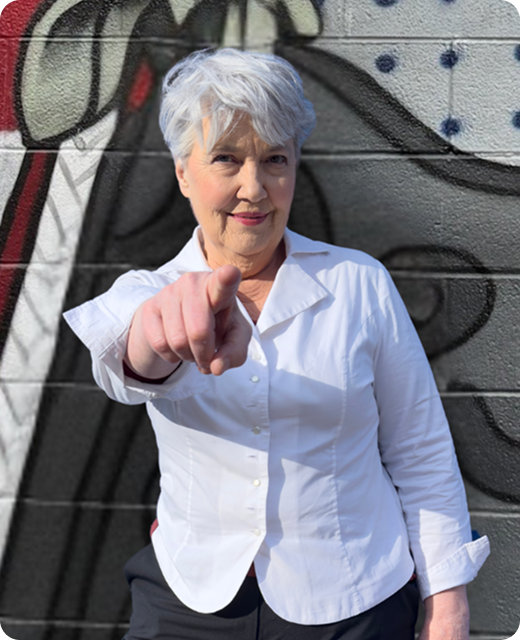
WHO AM I?
Hello, I'm Inga!
I was born to two Adulting 101 dropouts! I know what it’s like not to be seen. To be invisible. Mom: “Make me feel better about myself”. Dad: “Who’d you say you were again?”. I was becoming a person that didn’t match the ideal child of my educator mother and psychiatrist (yup!) father…and so instead, I became invisible. I ended up both taking responsibility for the reactions of everyone around me, and believing I would inevitably fail.
I arrived at the age of adulthood without the first clue of how to actually, well, “adult.” But along the way, I met my people. And they saw me, as I emerged, visible.
And over the last 25 plus years, I’ve had the profound privilege of fighting alongside my clients. Pulling the damaging lessons of their immature parents out by the root. Going to the intellect, then past the intellect, to the body. The body that shrinks, at the moment you know you’d be better served by standing tall. That surrenders when you need to assert, or shuts others out when you most need to lean into their comfort. I speak to you as one of you, and I see in you the seeds of whom you can become.
When I created my own group for Adult Children of Those with Personality Disorders in 2018, I brought what I understood was needed, according to my clients, and brought in my own somatic exercises…many generations of groups since, I now bring client-approved and -tested course to you!
WHO AM I?
Hello, I'm Inga!
I was born to two Adulting 101 dropouts! I know what it’s like not to be seen. To be invisible. Mom: “Make me feel better about myself”. Dad: “Who’d you say you were again?”. I was becoming a person that didn’t match the ideal child of my educator mother and psychiatrist (yup!) father…and so instead, I became invisible. I ended up both taking responsibility for the reactions of everyone around me, and believing I would inevitably fail.
I arrived at the age of adulthood without the first clue of how to actually, well, “adult.” But along the way, I met my people. And they saw me, as I emerged, visible.
And over the last 25 plus years, I’ve had the profound privilege of fighting alongside my clients. Pulling the damaging lessons of their immature parents out by the root. Going to the intellect, then past the intellect, to the body. The body that shrinks, at the moment you know you’d be better served by standing tall. That surrenders when you need to assert, or shuts others out when you most need to lean into their comfort. I speak to you as one of you, and I see in you the seeds of whom you can become.
When I created my own group for Adult Children of Those with Personality Disorders in 2018, I brought what I understood was needed, according to my clients, and brought in my own somatic exercises…many generations of groups since, I now bring client-approved and -tested course to you!
WHAT YOU CAN EXPECT
Defy Gravity, & Release Yourself from the Orbit of Your Emotionally Immature
My coaching program is your path to finally breaking free from the emotional orbit of an emotionally immature or personality-disordered parent—and reclaiming your voice, boundaries, and sense of self.
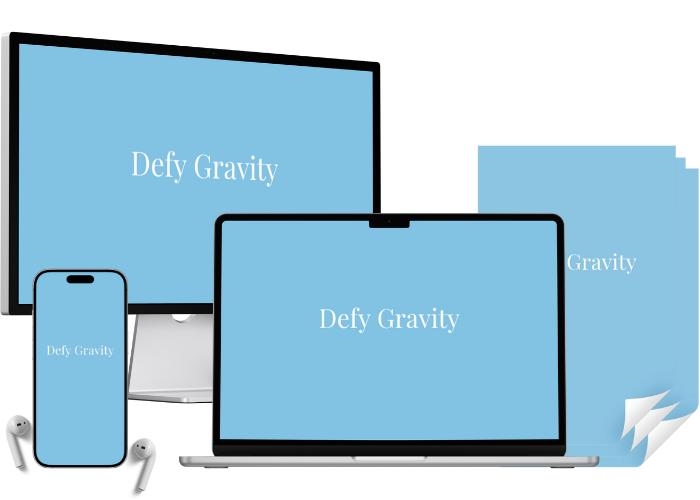
For those of you who want a full experience, the complete course includes:
An initial 50 minute intensive coaching session to hear your story and understand the impact of your emotionally immature or personality disordered parent
3 additional 30 minute coaching sessions, either online or in person, while you take the online course
Full access to my online course, including brief videos, articles to listen or read, comments section for further feedback, and exercises to practice
Text support via Signal between sessions
Yours for just $1195
Payment plans are available. (3 installments of $450)
For those who want the stand-alone online course, which can be done in conjunction with your therapist for additional support if needed:
Full access to my online course, including videos, articles to listen or read, comments section for further feedback, and exercises to practice.
Text support via Signal for six weeks
Yours for just $495
My hope is that, with sufficient interest, we might add a zoom group every other week. It is nothing less than magical to hear the stories of others mirroring your own, and to experience the deep understanding and support from others who truly get you!
Real Stories. Real Change.
Each person you’ll hear from once felt stuck, shut down, or overwhelmed. These are their stories of reconnection, regulation, and renewal.
BLOGS
Explore the Deeper Dive
Unlock insightful articles and strategies for personal growth, healing, and living your fullest life.

Too perfect? The case for imperfection
She’s scaling the stony edificeof a Colorado mountain, a rope tied to her belt linking her with the OutwardBound leader above, and I am marveling at her. Like a spider monkey, she’sreaching out with strong arms to find the holds above, extending her legs widefor the support that the earth has to give her, and her dancer’s body withevery movement reveals its grace. Then she stops. “I can’t. I can’t do itanymore. Let me down.” The terror in her voice is real. The leader coaches her,and the group gathered around me lends to a chorus of support. “You’re doingbeautifully! Keep going, you’re over half way to the top.” She tries again,reaching and extending and springing from hold to hold, gaining more feet untilshe is little more than a body length from the summit. “No, no, I can’t, I knowI can’t. I just can’t.” The leader relents, and carefully lets out rope as thiswoman, so close, has talked herself out of her evident ability. When she findsthe firm flat land again, she doubles over, and bursts into tears.
I am disappointed, and Iunderstand. A few minutes before, it was me hooked on the rope and depending onthe person on top to hold it firm (“on belay”) instead of her, taking so muchtime to determine each hold that the person guiding me called me on it. “It’sfine, all of the choices are fine. You’re perfect.” “Yes,” I shout back, “butnot perfect enough.” I think we both catch the import of those words at thesame time, I’m-not-perfect-enough slams into me and I gasp. This is revelatory,and for the rest of the climb, I attempt to not second-guess myself, evenslipping once only to feel the safe tug of the rope holding me suspended andfind myself breathless and exhilarated at the top.
She was not perfect enough, and for her, the only other option was that she would surely fail. She would surely fall./
Signs of perfectionism
This happened many yearsago, long before I became a psychotherapist, but it has come back to me timeand again, not only in the work my clients do, but in my work with them.Perfectionism hounds us. In particular, it dogs those with either demandingparents or those who ignore their children. The belief is that if by somemagical happenstance they hit upon the perfect action, behavior, visualpresentation, grade, athletic achievement ad nauseam, that the parent will atlast turn towards them with a smile, see them, acknowledge them as worthy. Itis never satisfied. Such a parent, even if they turn and see perfection,experiences that only as a reflection of the parent’s achievement, not thechild’s. And this moment is fleeting, a moment of correctness and not anaffirmation of a core sense of self.
These are most commonlywhat I see:
Hypervigilence—These are the “prairie dogs,” forever turning their heads, looking to see who’s judging them, and so consumed by how they appear to others, that they lose touch with inner awareness. They live with chronic embarrassment.
Living under the radar—These are the people who are always on the verge of disappearing, in the belief that if they don’t declare who they are, take significant action in their lives or state a belief including what they want and don’t want, that there can be no grounds on the part of others to find fault. Procrastination one of their more common practices.
Fundamentalism—These prefer the scripted life, culled from a rulebook often handed down by their parents, a preference for jobs that require little to no decision making and with expectations and actions that are clearly delineated, and an approach to life that is governed by a black-and-white, mechanistic sense of right and wrong. If you challenge their beliefs, be prepared for a strongly defensive response.
Apologies in advance—These are the people who live in constant fear of offending others. Growing up in a world of ever-changing, often contradictory expectations, they never knew from one moment to the next what might offend others. “Sorry” is a word commonly found in their vocabulary
Showing the hand—These are the ones who have just given up. Their life story is marked by perceived failures and poor choices, and now they “show the hand,” turn their backs and walk away, convinced they’ll never learn the magical alchemy of getting it right, at last.
The recovering imperfectionist
Regardless of howperfectionism affects us, the cost not only to us but to the world issignificant. The world moves forward powered by those who take calculatedrisks, who embrace the gifts of their unique selves and offer them in a way theworld can benefit from. Along this Hero’s Journey (or Hera), there will befailures and setbacks, but one’s humility and resilience, as well aspersistence, ultimately bear fruit in a way that is often, delightfully,unpredictable.
For the recoveringperfectionist, this means:
Learning to see not only threat, but opportunity, and even beauty, in the world around them. To feel safe, often, in this world because they now have the confidence to manage actual threat when it does occur…and for the rest, to enjoy and engage.
Showing up, and declaring who you are, what you believe, and what you desire. If others disagree with you or even judge you, you have the strength and skills now to address this respectfully. And you discover something wonderful when you at last agree to be seen: the people who do align with you, or desire to contribute, can now find you and lend you their support.
Embracing improv! I’m amazed at how many of my clients in recovery do just this: join an improv group. Getting out of your script, and not only letting life surprise you but coming up with your own words will absolutely make you feel like a crazy person to start with. And yes, you may fumble in your communication in the beginning. With practice, though, you will improve. In embracing your spontaneity, you will discover a source for vitality that is its own antidote to depression.
Learning from your mistakes and accepting feedback on your never-ending quest to know more about how to do better and be more loving.
Trusting others to let you know if they’ve been offended. Trusting others to be stronger than the people who raised you. Trusting that if others are easily offended, it’s about them. Recovering your sensitivity to others from the constant apologies that have hijacked it, you can now use it to tune into them more accurately, and, oh yes, bring yourself into the mix. You get to say “ouch” too!
Courageously standing your ground when either offended or believing you’ve done so. You learn how to repair the rupture, to believe others care enough to apologize and make it right, and to allow you to do the same.
Here’s hoping!
Scrambling up that cliff after the realization of what I’d said about not being perfect enough, I made less careful choices. Others had summited before me, some of them making odd choices and needing to retrace their steps, or needing the person on belay, holding the rope taught against their occasional slips. Imperfectly, eventually, all but one made it. And exulted, as I did. Sooner or later, if you decide to overcome perfectionism, you will make friends with the messiness of life. Perhaps, you will even decide to jump in, and get a little messy yourself. This is not chaos, and far from being overwhelmed, your stronger, more well-regulated nervous system can enjoy being the calm at the center of the storm, even if the storm is of your own making (any of you parents?).
Dancing ugly…
While the cliff left a scuff on the floor of my perception, another experience years later tilted that floor 90 degrees. It’s the time I learned to “dance ugly.”
It’s 1994, I’m new to Austin and failing in all directions. Austin has not immediately succumbed to my brilliance, celebrated in Durango by public speaking to hundreds at rallies and award ceremonies fighting for Gay and Lesbian rights and by advocacy for keeping children safe from abuse. I enter a hall where young, thin dancers swirl about each other, bending like willows to Gabrielle Roth’s Five Rythms. Unacknowledged, my stiff body attempts a mimic and accomplishes a mock of their grace. I hate them. In fury, I rebel, now dancing ugly, defying the years of ballet training—its own exercise in a never-satisfied quest for the perfect leap or pirouette—with angular twists, thrusting an elbow this way, martialing my legs to kick, sticking my butt out. The fury in my chest burns, then casts light. Suddenly, I realize I am delighting in my grotesqueness. The mirrors lining one wall catch me laughing as I dance with the vaudevillian reflected back at me. I turn. Somehow, all those stuck-up dancers have been replaced, and now each move I see is sweet, inviting; these are gentle, playful people. My body pulls towards their invitation; my forearm and that of another’s now weaving, exploring a way of flowing together. Eyes meet and do not look away. Leaning back, I slow-tumble over the body braced behind me and then, in turn, table my arms and legs firmly to support his weight. In my heart there is only glow, and tears push up to warm my face. My spirit extends in all directions and everywhere finds…companions.
Ultimately, I ask myself asa therapist not only what will serve my clients, so they can learn to lovetheir inner world, but what they can bring out and into the world, to make thishopelessly imperfect blue sphere a glorious adventure instead of a trial. It seemsironic that perfection, far from promoting a better world, constricts usagainst the actions required to make it so. In learning, instead, to connect ina healthy and durable way with others, we find the belay we need to take therisks that imperfection allows us. It is this ability to connect, within andwithout, as well as turning down the voice of judgment, that leads us to a lifeworth living. I wish that for all of you.
Frequently Asked Questions
Quick answers to help you feel informed and confident in your next step.
What are some things about your practice I need to know in determining whether you’re a good fit for me?
After being in clinical practice for over two decades, I’ve brought my focus to two main areas. I address the needs of adult children of emotionally immature and personality-disordered parents, Defy Gravity, as well as those experiencing overwhelming stress and the revitalization of numbed lives, Overcome Overwhelm.
For each of these areas, Defy Gravity and Overcome Overwhelm, I provide both in person and zoom coaching. The full program for each of these includes both individual sessions with me and an online course which you can access at any time, with no time restrictions.
I also make the online course available on its own, for those who want additional hacks to the existing health regimen they feel confident about.
To understand my approach, it’s also a good idea to read some of my “Deeper Dive” articles.
To be absolutely clear, I do NOT accept clients as a psychotherapist. Some among you may be experiencing clinical-level depression or PTSD, as opposed to the blues or an accumulation of stress. The hybrid model of using my coaching offerings in conjunction to working with a licensed psychotherapist towards a common goal–your ultimate vitality and purposefulness–is highly effective in my experience.
I like your website, and think you might be a good choice for me: what’s my first step?
You can immediately sign up for one of my coaching courses. However, if you want a more tailored experience, or have more questions before you take the plunge, scroll down to the contact form below, and send your question. After I respond via private email, we may also hop on a discovery call. You’ll have an opportunity to ask me what you need to know in order to make a well-informed decision, to get a sense of who I am and what I might offer you, and see how comfortable you are in my real or virtual office.
I’m actually in a fairly good place, I just want to become even healthier, more whole. How do you work with this?
Welcome to coaching! Life coaching is designed for those who want to further enhance their lives. I myself have benefited greatly from other life coaches as I’ve made significant transitions in my life, and have found that, along with clarifying the presenting issue and goal through practical problem solving, parts work (similar to IFS) and narrative therapy, can be extremely helpful.
As I am also a Licensed Massage Therapist, I may also include bodywork for my in person clients at their discretion. Bodywork includes Somatic Experiencing and CranioSacral Therapy to help regulate the body, allowing people to slow down and think more clearly. It also unearths hidden negative beliefs and stressful experiences, where they live, in the body.
My clients may do intensive work for a while, then not see me again for a month or a year, until they want to include my work to once again enhance their health and wellbeing. I absolutely welcome this as-desired (PRN) relationship, and look forward to exploring with you a unique plan that suits your needs.
What are some pointers to keep in mind, so that I can get the most for my investment?
Show up, on time, ready for the work. If we’re meeting via Zoom, please set yourself up for success! A quiet room, where you will not be disturbed, as well as a solid wifi connection, is best.
I’ll give you something to think about, some activity or exercise to perform, after every session, so that you can bring our work into the life you want to improve. Do it.
If my approach isn’t working for you, let me know. Through my twenty five+ years in practice, I’ve become skilled in multiple areas, so I can certainly adjust my approach to better serve your needs.
Particularly if you struggle to get in, stay in, your body, you’ll find that we work better if we initially build some momentum. It is important that you make time to come on at least a bi-weekly basis. After this, we’ll explore a schedule that works for you. We’ll also check in to see if my approach is right for you.
Recognize that the work we’ll be doing, regardless of which coaching option you’re interested in, is somatic (embodied). It digs deep, and actually impacts your body physically. If you don’t believe that you’re open to somatic work, or that it might be too much for you, be honest. I may not be the right person for you. You decide whether it’s worth a try.
I’m already working with a therapist and am looking for complementary services. Would you be open to working with me and my therapist?
My coaching packages’ fees are listed, with an option to pay over time. Additional coaching, depending on the time you need, is available at $225 per 60 minute hour, $150 per 30 minute half hour. Extended sessions are also available. Extended sessions are also available in 2-hour blocks, including coaching outside the office, and are available at $375
Do you accept insurance or sliding scale?
No, but I am willing to create a payment plan for well-motivated clients whom I believe the courses can help.
Be well, and I look forward to meeting with you!
Feel free to contact me.
It’s Time to Step Out of the Shadows—and Into the Life That’s Truly Yours
You are not broken. You were shaped by people who couldn’t meet your emotional needs—and it’s time to release their grip on your life. This course is your invitation to finally be seen, to reclaim your boundaries, and to live from a place of self-worth—not shame.
Here’s a free gift to get started:
My grounding exercise, to help you get centered in your busy day. I’ll occasionally also send special offers and insights (I promise, I won’t deluge your in-box!)

